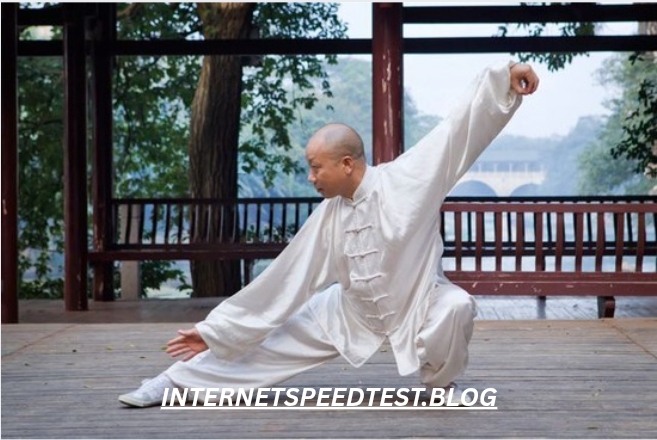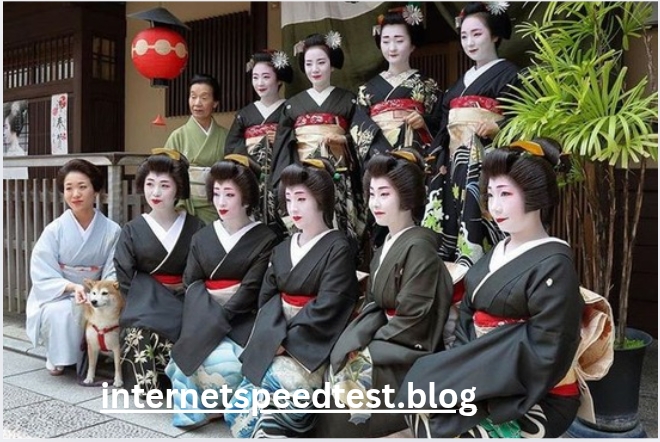Introduction
Martial arts have always captured the imagination of people across the globe. From the disciplined strikes of Karate to the fluid motions of Tai Chi, each style reflects a culture, philosophy, and unique way of life. Among the many martial arts forms that fascinate practitioners, zui quan schoiols, also known as the “Drunken Fist,” stands out for its unusual and deceptive style.
With its roots in ancient Chinese martial traditions, Zui Quan has recently gained popularity beyond China, especially through movies, video games, and the expansion of Zui Quan schools around the world. These schools focus on teaching not just the techniques but also the philosophy, health benefits, and cultural significance of this unique martial art.
In this article, we will dive deep into the history of Zui Quan, its training methods, the philosophy behind it, the rise of Zui Quan schools, and why so many people are choosing to study this art form today.
What is Zui Quan?
Zui Quan (醉拳), commonly referred to as the Drunken Fist, is a Chinese martial art style that imitates the swaying, stumbling, and unpredictable movements of an intoxicated person. While it may appear clumsy to an untrained eye, the movements are deliberate, strategic, and designed to confuse opponents.
The “drunken” aspect is not about consuming alcohol but about adopting movements that look unbalanced and unpredictable, making it difficult for an opponent to anticipate strikes or defenses. This style requires extreme agility, flexibility, and core strength.
The Historical Roots of Zui Quan
Origins in Ancient China
Zui Quan dates back to the Tang Dynasty and became more refined during the Ming and Qing Dynasties. Legend has it that the style was inspired by observing how intoxicated individuals moved in unpredictable yet surprisingly resilient ways.
Connection with the Eight Immortals
A large part of Zui Quan’s history connects with Daoist mythology, especially the Eight Immortals. Each immortal is believed to have inspired different techniques within the style, such as staggering footwork, deceptive strikes, and fluid dodges. Many schools of Zui Quan still integrate these symbolic movements into their training.
Zui Quan in Shaolin Tradition
The Shaolin monks also practiced versions of Zui Quan, integrating it with their philosophy of balance, discipline, and strategy. In Shaolin schools, Zui Quan was both a martial and performance art, often used in demonstrations to showcase agility and flexibility.
Characteristics of Zui Quan
Unlike many linear martial arts styles, Zui Quan emphasizes deception, rhythm, and creativity. Some of its key features include:
- Unpredictable Movements: Sudden falls, rolls, and recoveries that keep opponents off balance.
- Flexibility and Acrobatics: High-level mobility, including flips and low stances.
- Deceptive Strikes: Movements that look weak but contain hidden power.
- Illusion of Vulnerability: Pretending to stumble or fall to lure the opponent into a trap.
- Breathing and Rhythm: Synchronization of body movements with controlled breathing patterns.
These qualities make Zui Quan both a martial practice and a mesmerizing performance art.
The Philosophy Behind Zui Quan
Although the art appears chaotic, Zui Quan is rooted in deep philosophy.
- Adaptability: Just as drunken movements are unpredictable, Zui Quan teaches practitioners to adapt to any situation.
- Balance in Imbalance: It trains martial artists to find stability within apparent instability.
- Deception as Strategy: It shows that strategy can often outweigh raw power.
- Mind-Body Unity: Movements demand extreme awareness, control, and coordination.
These philosophical lessons often extend beyond martial training into daily life, teaching resilience, creativity, and adaptability.
Training Methods in Zui Quan Schools
Conditioning and Flexibility
Since Zui Quan requires unusual body control, students undergo extensive conditioning. Flexibility exercises, core strengthening, and acrobatics are essential parts of training.
Forms and Routines
Students learn taolu (forms), which are choreographed routines that imitate drunken movements. These forms involve sudden drops, sways, and powerful counterattacks.
Sparring Practice
Though difficult to apply in traditional combat, Zui Quan sparring teaches students timing, deception, and adaptability.
Performance Art
Many schools also prepare students for stage performances, as Zui Quan is visually stunning and often showcased in martial arts demonstrations.
Zui Quan in Popular Culture
Movies
Zui Quan gained worldwide fame through martial arts films, especially Jackie Chan’s “Drunken Master” series, which brought the style to international attention. His performances showcased not only the humor of the drunken style but also its hidden power.
Video Games and Media
Characters in games like Tekken’s Lei Wulong and Street Fighter’s Chin Gentsai further popularized the style among younger generations.
Stage Demonstrations
Martial arts tournaments often feature Zui Quan performances, highlighting its artistry and complexity.
Why Are Zui Quan Schools Becoming Popular?
The rise of Zui Quan schools across Asia, Europe, and North America can be attributed to several factors:
- Cultural Fascination: People are drawn to the mystical and entertaining aspects of drunken fist.
- Fitness Benefits: The acrobatics and flexibility drills improve strength, stamina, and agility.
- Self-Expression: Zui Quan allows creativity in movement, unlike rigid martial arts forms.
- Community and Tradition: Students connect with Chinese culture, history, and philosophy.
- Entertainment Value: Many join for the fun, as training often feels like a mix of dance and combat.
What to Expect in a Zui Quan School
Students enrolling in Zui Quan schools can expect:
- Beginner Classes: Introduction to basic stances, falls, and footwork.
- Progressive Levels: Advanced forms with acrobatics, flips, and deceptive techniques.
- Cultural Education: Understanding Daoist philosophy, Chinese history, and folklore.
- Health Benefits: Improved flexibility, endurance, and coordination.
- Performance Opportunities: Many schools organize shows and tournaments.
Finding the Right Zui Quan School
If you’re considering joining, here are some tips:
- Check Lineage and Authenticity: A good school should trace its teachings to recognized masters.
- Qualified Instructors: Ensure instructors have practical experience in Zui Quan.
- Training Environment: Look for schools that balance discipline with creativity.
- Student Reviews: Ask students about their learning experience.
- Trial Classes: Attend a demo class before enrolling.
Challenges of Learning Zui Quan
While exciting, Zui Quan is not easy to master. Common challenges include:
- High Physical Demand: Requires strong flexibility, balance, and endurance.
- Complex Movements: The deceptive style takes years to perfect.
- Limited Practical Combat Use: Some critics argue it is more performance-based than combat-oriented.
- Few Authentic Schools: Finding legitimate training centers can be difficult outside China.
Health Benefits of Practicing Zui Quan
Beyond martial applications, Zui Quan offers remarkable health benefits:
- Improves flexibility and joint strength.
- Strengthens the core and lower body.
- Enhances balance and coordination.
- Boosts cardiovascular endurance.
- Encourages mental relaxation and stress relief.
Zui Quan Schools Around the World
Today, Zui Quan schools exist not only in China but also across Europe, North America, and Australia. Some are specialized schools dedicated solely to drunken fist, while others are broader martial arts academies that include Zui Quan as part of their curriculum.
- China: Shaolin schools and Wushu academies remain the best places for authentic training.
- Europe: Several Kung Fu centers in the UK, France, and Germany teach Zui Quan as part of their programs.
- USA & Canada: With the popularity of Kung Fu films, North America has seen a steady rise in Zui Quan classes.
Future of Zui Quan Schools
With global interest in Chinese martial arts and the continued popularity of martial arts cinema, the future of Zui Quan schools looks promising. As fitness trends evolve, Zui Quan may also be incorporated into dance-fitness programs, stage performances, and even cinematic choreography.
Conclusion
Zui Quan is much more than just a martial art; it is a cultural expression that combines philosophy, performance, and combat strategy. Zui Quan schools worldwide are preserving this tradition while adapting it for modern students who seek fitness, self-expression, and cultural connection.
Although challenging to master, the rewards in flexibility, creativity, and personal growth make Zui Quan an exciting journey for martial arts enthusiasts. Whether you’re drawn to it for fitness, philosophy, or pure fascination, the drunken fist continues to inspire and captivate people across the globe




